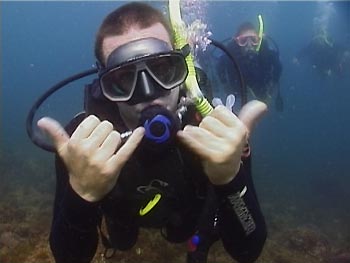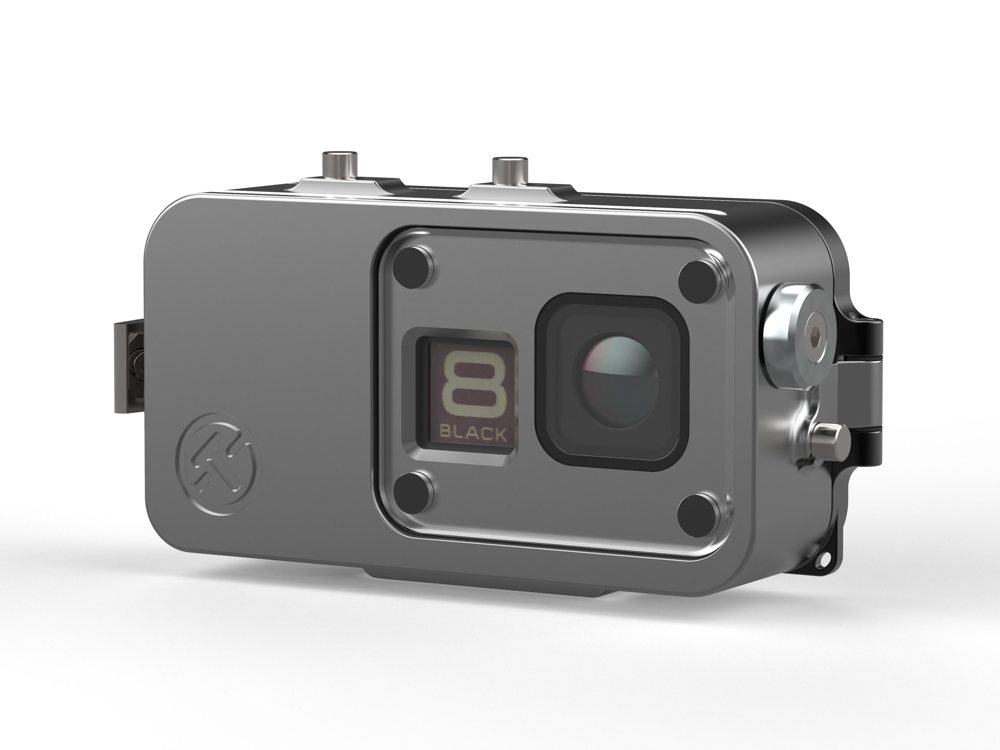- Home
- Directory
- Shop
- Underwater Cameras - Photographic Accessories
- Smartphone Housings
- Sea Scooters
- Hookah Dive Systems
- Underwater Metal Detectors
- Dive Gear
- Dive Accessories
- Diving DVD & Blu-Ray Discs
- Diving Books
- Underwater Drones
- Drones
- Subscriptions - Magazines
- Protective Cases
- Corrective Lenses
- Dive Wear
- Underwater Membership
- Assistive Technology - NDIS
- On Sale
- Underwater Gift Cards
- Underwater Art
- Power Stations
- Underwater Bargain Bin
- Brands
- 10bar
- AOI
- AquaTech
- AxisGo
- Backscatter Underwater Video and Photo
- BLU3
- Cayago
- Chasing
- Cinebags
- Digipower
- DJI
- Dyron
- Edge Smart Drive
- Eneloop
- Energizer
- Exotech Innovations
- Fantasea
- Fotocore
- Garmin
- Geneinno
- GoPro
- Hagul
- Hydro Sapiens
- Hydrotac
- Ikelite
- Indigo Industries
- Inon
- Insta360
- Intova
- Isotta Housings
- Jobe
- JOBY
- Kraken Sports
- LEFEET
- Mirage Dive
- Nautica Seascooters
- Nautilus Lifeline
- NautiSmart
- Nitecore
- Nokta Makro
- Oceanic
- Olympus
- OM System
- Orca Torch
- Paralenz
- PowerDive
- QYSEA
- Scubajet
- Scubalamp
- Sea & Sea
- SeaDoo Seascooter
- SeaLife
- Seavu
- Shark Shield
- Sherwood Scuba
- Spare Air
- StickTite
- Sublue
- Suunto
- SwellPro
- T-HOUSING
- Tusa
- U.N Photographics
- Venture Heat
- XTAR
- Yamaha Seascooter
- Youcan Robot
I'd love to become a diver, but ... SEVEN most common cop-outs
Contributed by Tim Hochgrebe
Story and Photos by Tim Hochgrebe
Most people who don't dive would have at least
thought once about
exploring this amazing part of the planet they have been missing so
far. There are many common excuses on why people decide not to take the
plunge; 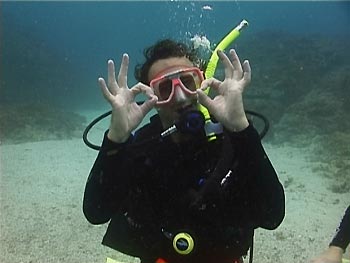 generally a lack of knowledge keeps people from
trying. Let's
debunk some of those myths and get more people SCUBA diving!
generally a lack of knowledge keeps people from
trying. Let's
debunk some of those myths and get more people SCUBA diving!
I'd love to try scuba diving, but ...
COP OUT #1: I'm claustrophobic
At first it might seem very restrictive that you
have to use a
'breathing apparatus' and other dive gear to be able to move and
breathe underwater, but once you figure out the gear you will notice
the massive freedom, the vastness of the ocean and the fact that you
can suddenly move in three dimensions effortlessly and weightlessly. For
those with extreme symptoms of claustrophobia it might be best to
restrict you diving to very clear waters with good visibility.
COP OUT #2: You have to be a good swimmer - I am not fit enough
Most people's diving requires not much effort. Diving is not an endurance sport and quite often if you plan your dive properly, you can let the current take you around a dive site and your fins are merely for steering. Having said that of course there are more challenging dives where swimming against a current and in strong surges are involved but you just have to pick your dive sites and ocean conditions to suit your swimming and diving skills.
To earn your Open Water certification, all you need to do is tread
water for 10 minutes and swim for 200 meters.
COP OUT #3: I'm afraid of sharks
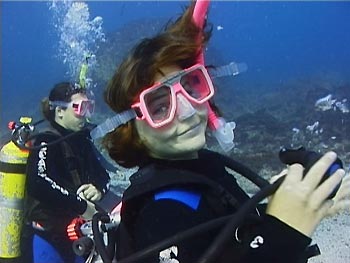 As you can read in our shark
de-mystifying article, the chances of being bitten by a shark are
incredibly small. Reading the shark attack files it becomes apparent
that most shark attacks on humans involve some kind of uneducated
decisions by the people who get bitten. Grabbing a wobbegong's tail,
spear fishing in sharky waters and dangling dead fish around your waist
etc. Like most other animals, sharks are afraid of things that are big
and move through the water blowing bubbles. In most instances shark
attacks are cases of mistaken identity and sharks will quickly realise
that humans are 'friends not food'. It is really us humans who are no
friends to the sharks, but that is another story in itself.
As you can read in our shark
de-mystifying article, the chances of being bitten by a shark are
incredibly small. Reading the shark attack files it becomes apparent
that most shark attacks on humans involve some kind of uneducated
decisions by the people who get bitten. Grabbing a wobbegong's tail,
spear fishing in sharky waters and dangling dead fish around your waist
etc. Like most other animals, sharks are afraid of things that are big
and move through the water blowing bubbles. In most instances shark
attacks are cases of mistaken identity and sharks will quickly realise
that humans are 'friends not food'. It is really us humans who are no
friends to the sharks, but that is another story in itself.
COP OUT #4: Diving is expensive
A big myth this one. First you don't need to buy all your own gear
to become a diver. All diving courses will include the use of all
equipment and when you are certified you can always hire gear if you
can't yet afford it. Buying dive gear can just like any other sport
cost every little or a fortune. You can buy second hand gear to start
with and maybe not go for the latest and greatest high-tech dive
computer to keep the budget low. The best investment for an upcoming
diver is to have your own mask as that of course is your 'window to the
ocean'. After that many people consider their own wetsuit an important
purchase, mainly for hygienic reasons .. of course some parts of this
planet don't require a wetsuit at all and you can take the plunge in
your swim suit, cossie, bordies ... etc.
COP OUT #5: Diving is a high risk sport
It seems quite strange that diving is often considered an extreme
sport as both words don't really fit. Most people's diving activities
are certainly not extreme and also not a real sport. This is why
'bigger' people quite often take a liking to the 'sport' of diving. It
allows the weightless hovering in a three-dimensional environment. We
would rather have diving classified as an adventure activity. In
regards to the risk involved, statistics show that the injury rate in
diving is very low, with 50 out of 100,000 participants as compared to
many 1000's in many other sports such as basketball, soccer and even
golf.
COP OUT #6: I am asthmatic
Well, this is a pretty good reason for most people not to take up
scuba diving as the typical trigger factors of asthma are present in
scuba diving. The main factors here are breathing cold and dry air
which is potentially very dangerous for people with asthma to breathe.
Heavy physical exercise such as swimming against a current with a heavy
tank on the back can produce breathlessness. Accidental inhalation of
salt or fresh water can produce coughing as well as a narrowing of the
airways. However there are many so called asthmatics than can be
cleared to dive by a diving doctor (see also our full article on diving with asthma). Most diving
medical experts agree that if a person has had no symptoms or signs
whatsoever of asthma for at least five years and has required
absolutely no anti-asthma medication for this period, and has a normal
diving medical examination including breathing tests, then they should
be allowed to dive, after explanation of the risks.
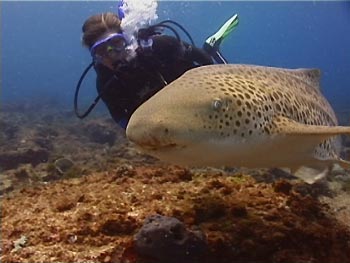
COP OUT#7: I don't have the time
Come on ... get a life, leave facebook and twitter alone for a moment and do something that will change your life forever. You are missing 70% of the planet if you don't experience our 'World of Water'. Diving is the best escape from the reality of life that you can imagine, everything around you is different, the animals you see, the way you move, the way you breathe, the way you perceive time and space ... you will immediately forget all the stress of 'normal life' and when you return to shore your mind will be refreshed and more efficient ... so you actually save time by taking the time to go diving.
So, call you local dive shop, email a dive club in your area or sign up for a learn-to-dive holiday today and come back here to tell us about your new adventures.
Shopfront
-
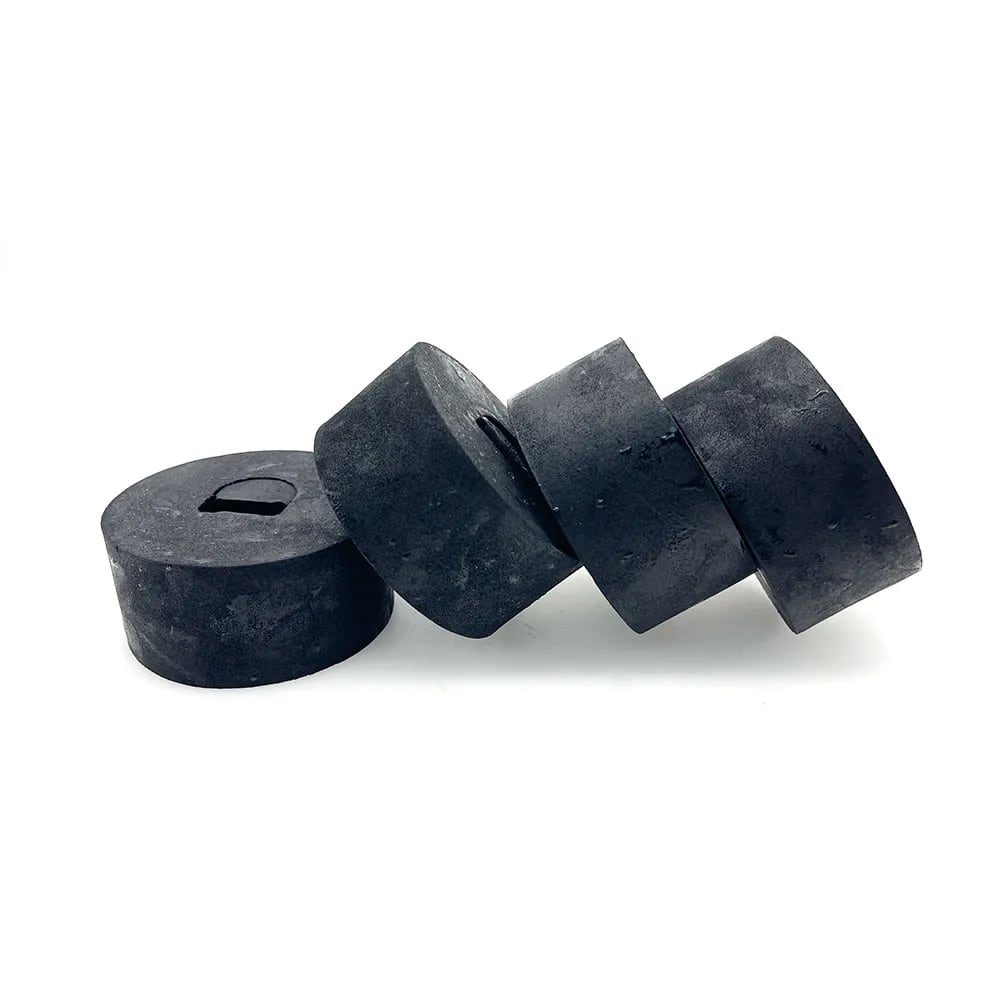 Nitescuba Float Block FAXS/FAXM
Nitescuba Float Block FAXS/FAXM
- Price A$ 59.95
-
 Venture Heat - Pro 32w Dive Vest Kit - V2
Venture Heat - Pro 32w Dive Vest Kit - V2
- Price A$ 1,139.00
-
 K5 Underwater Scooter Batteries
K5 Underwater Scooter Batteries
- Price A$ 299.00
-
 GoPro HERO13 Black Action Video Camera
GoPro HERO13 Black Action Video Camera
- Price A$ 649.00
-
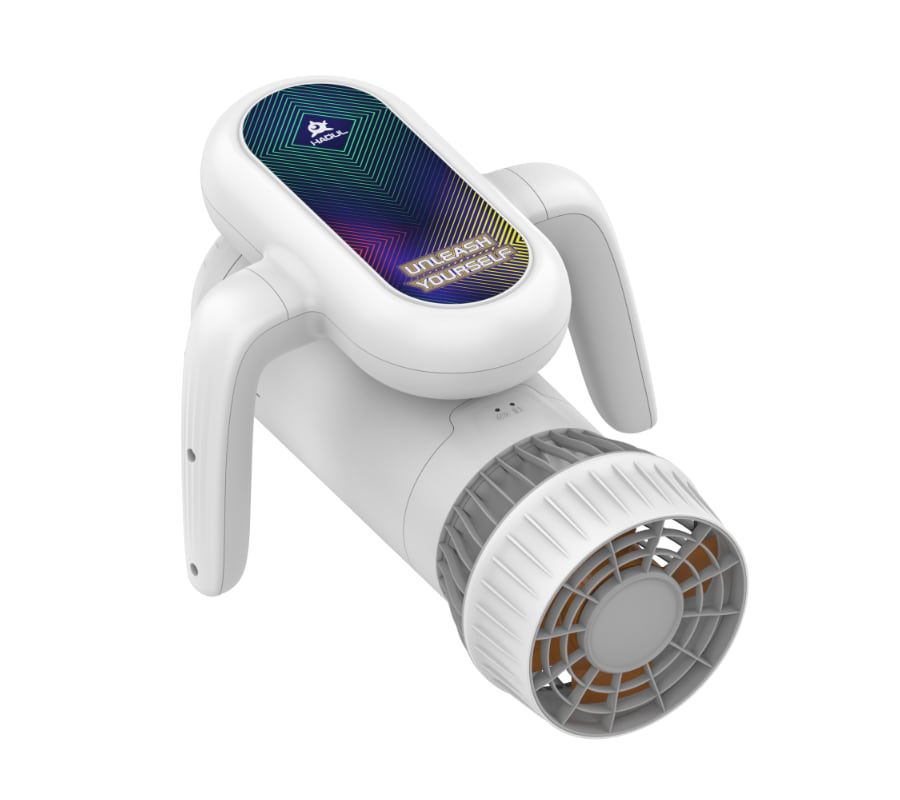 Hagul EZ Underwater Scooter - by Sublue
Hagul EZ Underwater Scooter - by Sublue
- Price A$ 599.00
-
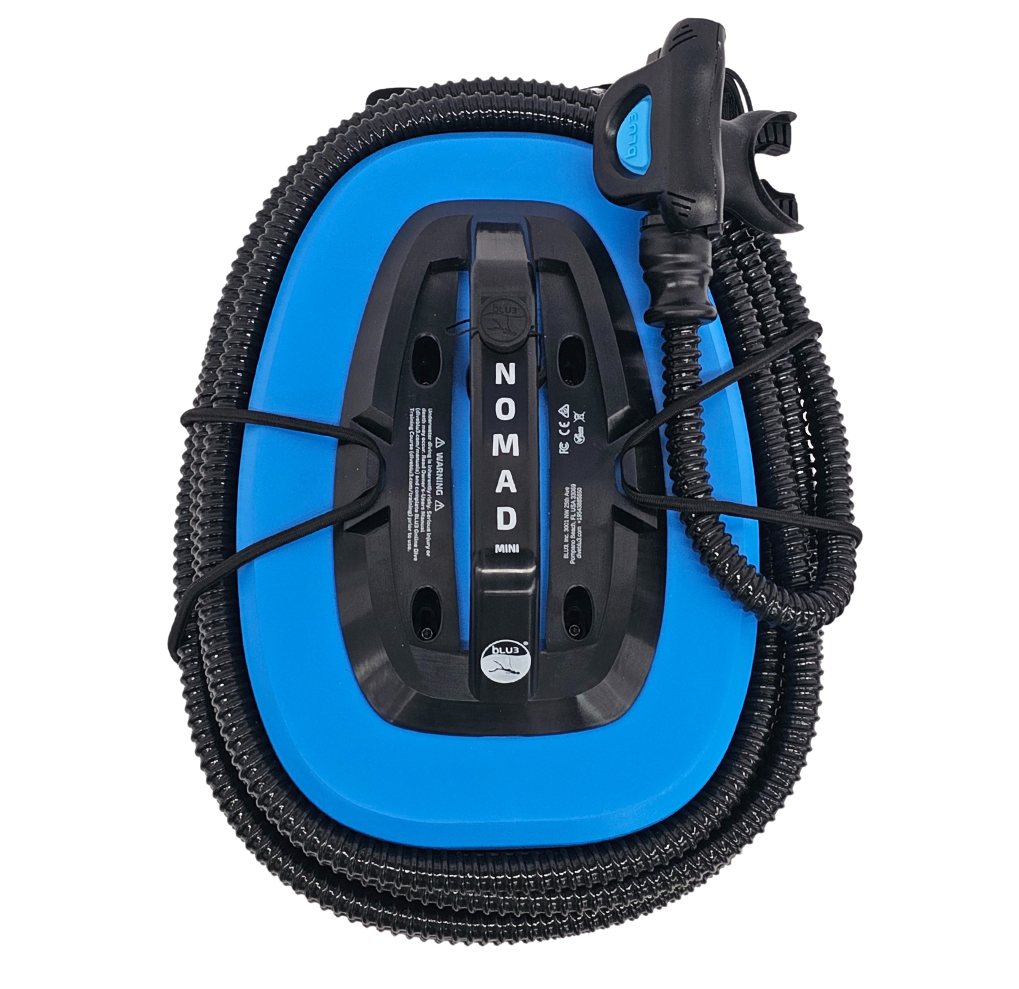 Nomad Mini by BLU3 - Compact dive system - 15 feet
Nomad Mini by BLU3 - Compact dive system - 15 feet
- Price A$ 2,549.00
-
 Sealife Sea Dragon Duo 10K+ Color Boost Set
Sealife Sea Dragon Duo 10K+ Color Boost Set
- Price A$ 2,395.00
-
 Scubalamp PV32T LED Photo/Video Light - 3,000 lumens
Scubalamp PV32T LED Photo/Video Light - 3,000 lumens
- Price A$ 349.00
In the Directory

 Seabob Sales
Seabob Sales
Official dealer of SEABOB Luxury Seatoys by CAYAGO. Addictive fun on and underwater. Dive in and discover. Made in Germany.
 Local Dive Thailand
Local Dive Thailand
Phuket's local scuba diving experts. A great blend of Thai local knowledge and European professionalism that equals a superb dive experience with the most knowledgeable guides and instructors


